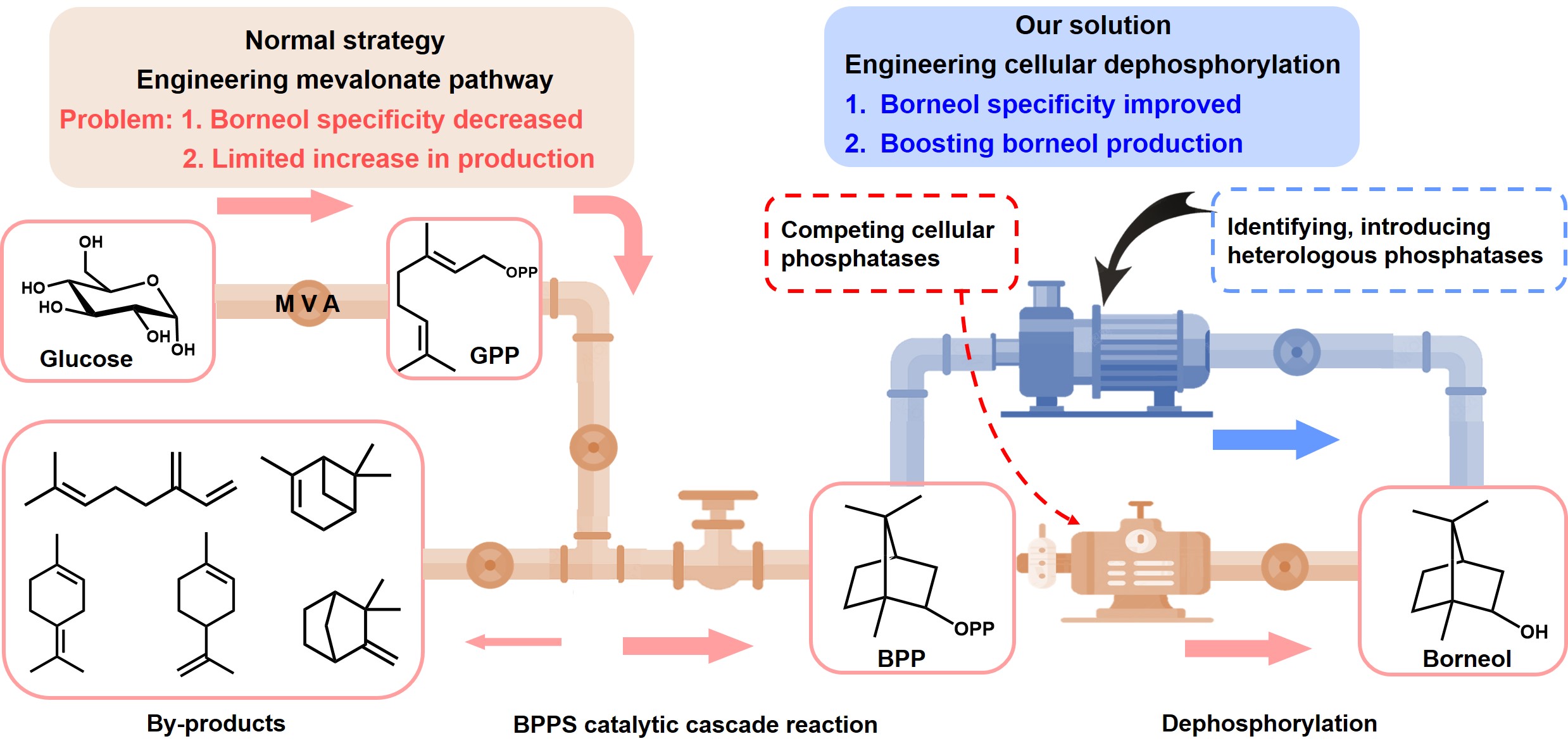Recently, our group collaborated with Prof. Luqi Huang team (National Resource Centre for Chinese Materia Medica, CACMS) engineered S. cerevisiae for the efficient production of (+)-borneol. By engineering BPP dephosphorylation and optimizing the MVA pathway, the production of (+)-borneol was increased by 33.8-fold, which enabled the production of 753 mg/L under fed-batch fermentation in shake flasks, the highest reported titer so far.
(+)-Borneol, a valuable fragrant monoterpene used as pharmaceutical agent. Plant extraction cannot meet the demand for (+)-borneol, and synthetic biology provides a sustainable supply route for (+)-borneol production. However, (+)-borneol production is generally very low in microbes such as Saccharomyces cerevisiae, even several endeavors have been conducted in optimizing the isoprenoid pathway and enhancing the supply of precursors and cofactors. The key challenge in engineering (+)-borneol production in S. cerevisiae is the complex and unusual dephosphorylation reaction that suffers the side-reaction and competes with cellular lipid phosphorylation metabolism.

This study was published in Acta Pharmaceutica Sinica B. This work was supported by National Key R&D Program of China, the CACMS Innovation Fund, and the Key project at central government level. (Text and image by Haiyan Zhang).
Link:https://doi.org/10.1016/j.apsb.2024.12.039
中文版

